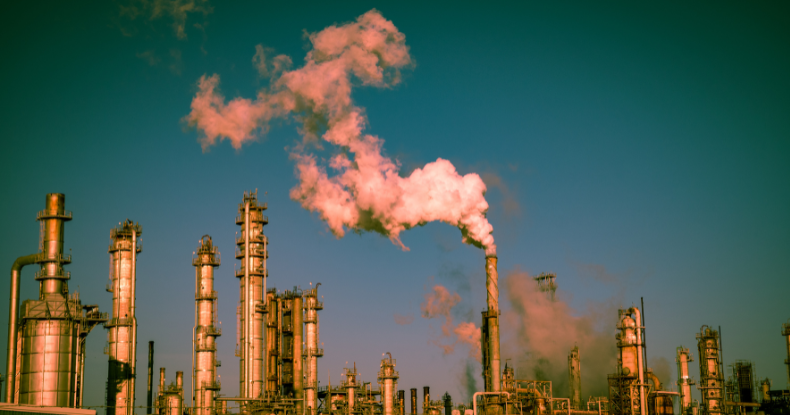What is Carbon Capture?
Carbon capture is the process by which carbon dioxide (CO2) is captured from the atmosphere or some industrial processes and stored securely. The reason for carbon capture is to reduce the amount of CO2 released into the atmosphere, thereby helping reduce the adverse effects of climate change. Capturing carbon dioxide is most often done at the point of emission, or from the atmosphere, either indirectly or directly. CCS captures carbon dioxide (CO2) before it enters the atmosphere, transporting and storing it for centuries. The carbon is separated from other gases, transported, and later buried or stored in a suitable deep, underground place. As the private sector continues to rally around climate change and investment, CCS is a primary consideration. The goal is to prevent CO2 from being released to mitigate climate change’s effects.
As with all plants, trees consume carbon dioxide and release oxygen during photosynthesis. So, why not simply plant more trees? While planting more trees is certainly an excellent idea and is being pursued worldwide, it is not the only answer. The reality is that trees cannot be planted fast enough to do the “carbon capture” job by themselves. When we look at climate change realistically, we understand that meaningful change will require an “all the above” approach. At a minimum, it starts with more incentive to invest in technologies that limit emissions, increased natural solutions (like planting more trees), and severe regulation and enforcement on current “pollution offenders.”
The Significance of Carbon Capture in Mitigating Climate Change
Carbon capture is crucial in mitigating climate change and reducing greenhouse gas emissions, making it a cornerstone of sustainable development strategies worldwide. It is significant in the following:
Climate Change Mitigation:
Carbon capture technology directly addresses the primary driver of climate change by capturing carbon dioxide (CO2) emissions from industrial processes and power generation. By preventing CO2 from entering the atmosphere, it helps reduce the concentration of greenhouse gases, thereby mitigating the warming of the planet and its associated adverse effects.
Reducing Greenhouse Gas Emissions:
The captured CO2 can be stored underground through carbon capture and storage techniques, preventing it from contributing to the greenhouse effect and global warming. This reduction in greenhouse gas emissions is essential for meeting international climate agreements and targets, such as those outlined in the Paris Agreement, which aim to limit global temperature rises.
Achieving Global Climate Targets:
Carbon capture technologies play a vital role in helping countries and industries meet their emissions reduction targets and commitments. These technologies enable the continued use of fossil fuels, such as coal and natural gas, in a more environmentally sustainable manner by capturing and mitigating the emissions associated with their combustion.
Sustainability Goals:
Incorporating carbon capture into energy and industrial infrastructure also aligns with broader sustainability goals, including reducing air pollution, enhancing energy efficiency, and promoting cleaner production processes. It facilitates the transition towards a low-carbon economy, while supporting energy security and resilience against climate-related risks.
Carbon Capture Technologies
Pre-Combustion Capture
Pre-combustion capture involves treating the fuel, such as coal or natural gas, to produce a gas mixture containing hydrogen and carbon monoxide, known as syngas, through processes like gasification or reforming. The syngas is then processed to separate and capture the CO2 before it enters the combustion chamber, typically using techniques like physical or chemical absorption.
Post-Combustion Capture
Post-combustion capture involves treating the exhaust gases from combustion, which contain CO2 along with other pollutants and gases. Various technologies, such as amine scrubbing, membrane separation, and chemical absorption, are used to capture and separate the CO2 from the flue gas stream.
Oxy-Fuel Combustion
Oxy-fuel combustion is a technology used in power generation and industrial processes that enhances carbon capture efficiency by altering the combustion environment. In oxy-fuel combustion, the conventional air used for combustion is replaced with a mixture of pure oxygen and recycled flue gases, which primarily consist of CO2 and water vapor. The absence of nitrogen in the combustion mixture reduces the volume of flue gases produced and increases the concentration of CO2, facilitating its capture and separation.
Conclusion
Carbon capture is not just a technological solution, but a strategic imperative in the global effort to combat climate change, meet climate targets, and advance sustainable development goals. Its significance lies in its ability to reduce greenhouse gas emissions, support clean energy transitions, and contribute to a more resilient and sustainable future for future generations.
Lee Enterprises Consulting
Lee Enterprises Consulting has over 180 experts that can help navigate your bioeconomy needs. If you need assistance with your carbon capture projects and related matters, please contact us.
See also: Carbon Capture Challenges

